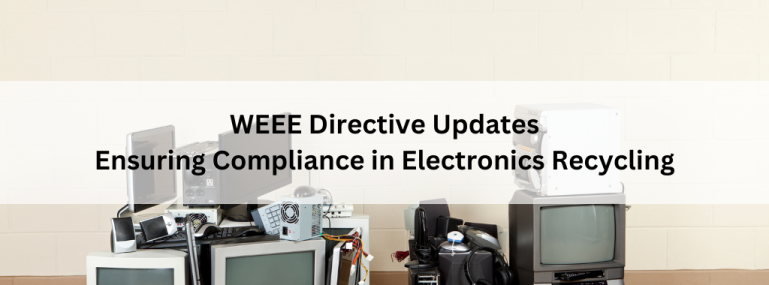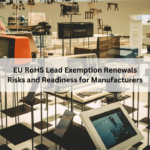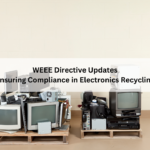Electronics are a big part of our lives, but we need to know what happens when they stop working The EU’s updated WEEE Directive is making sure we handle that waste more responsibly. With new rules coming into effect by October 2025, companies that make or sell electronics need to step up their recycling game. It’s not just about following regulations—it’s about protecting the planet and doing business the right way.
The main goal of the updated WEEE Directive is to make electronics recycling more effective, fair, and environmentally responsible. As technology evolves, so do the types of electronic products we use—and discard. This update aims to ensure that everyone involved in the lifecycle of these products, from manufacturers to retailers, takes proper responsibility for their disposal. By clarifying roles, improving transparency, and expanding the scope to include newer devices like solar panels, the directive encourages businesses to adopt greener practices. Ultimately, it’s about reducing electronic waste, protecting natural resources, and creating a more sustainable future for all.
The updated WEEE Directive is a big step forward in making electronics recycling smarter and more sustainable. For businesses, it means clearer rules and fewer surprises—helping them avoid fines and stay compliant. For the environment, it’s a win: less harmful waste ends up in landfills, and more valuable materials get reused. This also supports the circular economy, where old electronics can be turned into new products instead of being thrown away. And for all of us, it means cleaner communities and a healthier planet. The impact is wide-reaching, encouraging everyone—from manufacturers to consumers—to think more responsibly about the life cycle of electronic products.
As a trusted partner in regulatory compliance, Compliance XL helps businesses understand their responsibilities, manage registrations, and stay on top of reporting requirements. Their expert support ensures companies don’t just meet the October 2025 deadline—they do so confidently and correctly. By simplifying complex regulations and offering tailored solutions, Compliance XL empowers organisations to focus on what they do best, while contributing to a cleaner, more sustainable future.
FAQs:
- Do we need to register in every EU country?
Yes, if you sell in multiple EU countries, you must register in each one. Compliance XL can help manage this efficiently.





